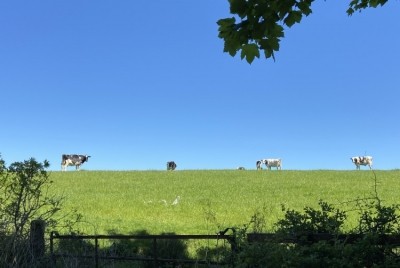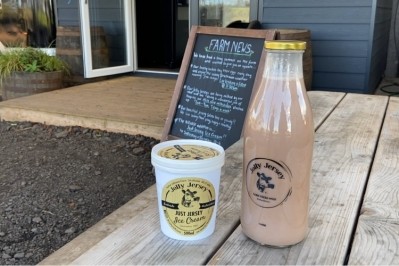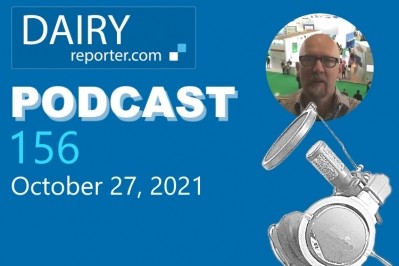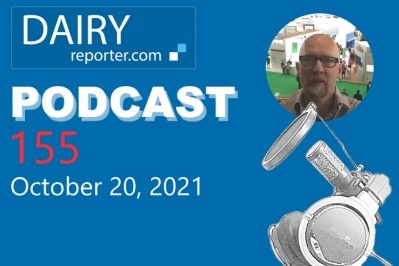Dairy Dialog podcast 152: EUFIC, N2 Applied
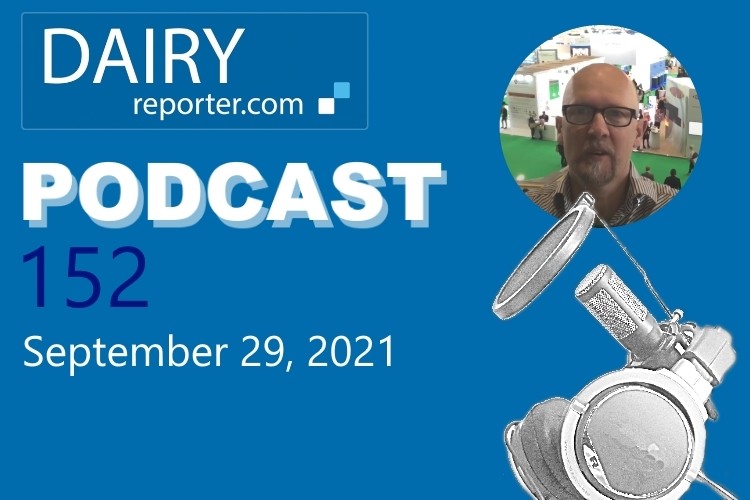
We feature a longer interview on the subject of food waste with Dr Nina McGrath, senior manager for food & health science at the European Food Information Council (EUFIC).
We also have an interview with N2 Applied CEO Carl Hansson, and our weekly look at the global dairy markets with Charlie Hyland at StoneX.
Rapid response on food waste needed
Food waste remains a major issue in Europe and at global level. More than 930m tonnes of food sold to households, retailers, restaurants and other food services are thrown away every year according to the latest estimates (UNEP Food Waste Index Report 2021); and that is on top of food lost during production and distribution.
Despite mounting pressure to reduce the carbon footprint of our diets, if food loss and waste were a country, it would be the third largest emitting country in the world, causing more greenhouse gases than any single countries in the world except China and the US.
On September 29, on the occasion of the International Day of Awareness of Food Loss and Waste, convened by the Food and Agriculture Organization (FAO), Dr Laura Fernández Celemín, director general of the European Food Information Council (EUFIC), said, ‘’Food waste is a growing problem we need to tackle urgently across the food supply chain: throwing away food spoils valuable resources, causes excess carbon dioxide emissions intensifying the climate crisis, while putting a further strain on food security.
“To get a grip on food waste, we must involve all actors that can bring change, from farmers to retailers, national governments, multilateral institutions, NGOs, as well as citizens.”
The international day is a call to action to both policymakers and the private sector to prioritize actions and move ahead with innovation to reduce food loss and waste towards restoring and building back better and resilient-ready, food systems.
In contribution, EUFIC, a consumer-oriented non-profit organization working to empower healthier and more sustainable diets and lifestyles, has launched a month-long social media action and awareness campaign providing citizens with information on how every simple action at home can make a positive contribution to the larger challenge.
Under the banner “A science-based hack a day, keeps food waste away - a 30-day journey to reduce food waste at home," citizens are invited to broaden their awareness of the impact of food waste, learn new food management skills and obtain practical tips to improve their own food waste habits, boosting people's motivation and knowledge to actively become a part of the solution.
Food waste is currently responsible for 8-10% of global greenhouse gas emissions. The issue is the focus of the United Nations Sustainable Development goal (SDGs) 12.3, aiming to, by 2030, halve per capita global food waste at the retail and consumer levels and reduce food losses along production and supply chains, including post-harvest losses.
UNEP's 2021 Food Waste Index Report measured 931m tonnes of food sold to households, retailers, restaurants and other food services each year; this means 17% of all food available at consumer level is currently wasted.
Improving food waste measurement is crucial all along the supply chain, to make sure all actors involved play their role and bring the change needed. According to the recent Driven to Waste report from WWF and Tesco, in particular farm-stage food loss is a significant but neglected food waste hotspot.
The report finds that 1.2bn tonnes of food is wasted on farms each year – enough to feed the world's 870m undernourished four times over, adding to the 931m tonnes wasted from retail, food service and households.
N2 Applied raises funds for rollout of methane-eliminating technology
Norwegian agtech business N2 Applied has completed a further fundraising of NOK 83m ($9.6m) from existing shareholders to accelerate the commercial rollout of technology converting animal manure into sustainable fertilizer while trapping greenhouse gases.
Investors participating in the latest round, which was led by CEO Carl Hansson and follows a similar level of investment last year, include Blue River Invest, Holta Invest, Joh.Johansen/NorgesGruppen and Ramussengruppen, in addition to new investors.
N2 Applied said it has run multiple trials and pilot projects across nine countries showing practical elimination of emissions and improved grassland yields, as well as the ability to suppress odors from ammonia leakage. Following this, the business is now moving to offer both further trials and full international commercial availability of its technology, as dairy brands and individual farms seek to reduce emissions from their supply and production chains.
While lowering carbon dioxide emissions is key to managing the effects of climate change, methane is also a potent greenhouse gas, with the recent United Nations IPCC report and its Economic Commission for Europe outlining it contains more than 80 times the global warming potential of carbon dioxide over a 20-year period.
Using a scientific technique applying air and electricity to slurry, the technology within the N2 Unit performs a plasma conversion that ‘locks in’ both methane and ammonia to the liquid waste material, producing a sustainable fertilizer. Treated slurry produced on-farm has the potential to reduce the need for chemical fertilizer, and therefore further reduce greenhouse gas emissions.
“Technology that practically eliminates methane and ammonia emissions has profound implications for the dairy food sector and farms of many sizes. Having proven the scientific capabilities of the N2 Units across multiple trials and environments, this latest investment enables us to accelerate the commercial rollout to a dairy sector that has set ambitious net-zero goals on emissions, for which methane is an enormous factor,” said Carl Hansson, CEO, N2 Applied.
“As the dairy industry moves to counter its environmental impact, it is seeking out practical innovation that can tackle the biggest problems while introducing new farming practices. Combined, this supports an approach to sustainable food production that can enable more people to be fed with far-reduced impact on our world.”
“We see great potential in this technology as a practical and innovative solution to help reduce the greenhouse gas emissions in the dairy industry. We believe that moving to this commercial phase will be important to start realising the promise of N2 Applied after encouraging trials and pilot projects,” said Signe Bunkholt Sæter, director sustainability at NorgesGruppen.
